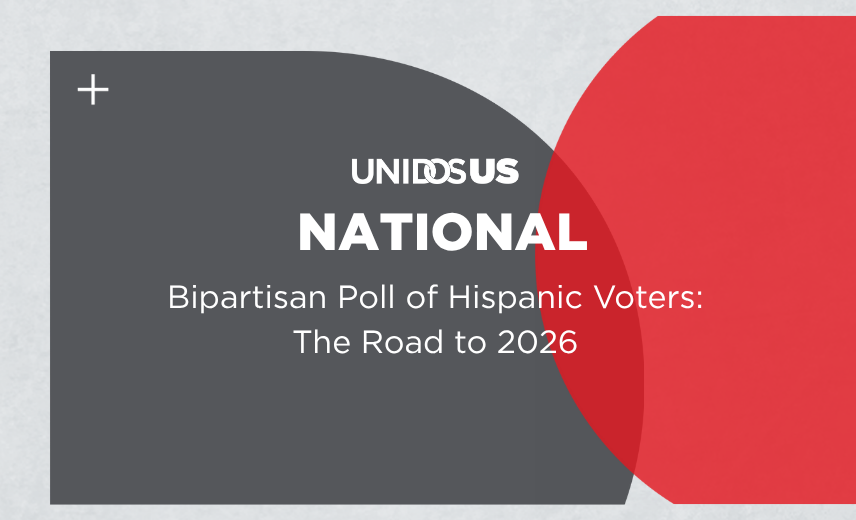Opinion for The Latino Newsletter
In the English‑language market, only about 3% of published books are translations. Within that small slice, Spanish represents roughly 12%–17% of translations most years.
Do the math and you’ll see that if only about 3% of all books published in English are translations, and Spanish makes up just 12% to 17% of those, then fewer than one in every 200 new English-language books originates in Spanish.
That’s not a pipeline, it’s a pinhole.
A recent study of independent presses shows that Western European languages dominate translation lists by a factor of four over non-European ones, reinforcing a narrow view of “world literature” and leaving much of Latin America and U.S. Hispanic voices in the shadows. That’s a staggering gap when you realize that — if counted as a nation — the U.S. Hispanic population would be the second-largest Spanish-speaking country on earth, after Mexico.
U.S. Hispanics are hit twice by this imbalance. Not only do they live in a country where less than 1% of books published in English originate in their native language, but the amount of literature originally written in Spanish that actually reaches the U.S. market arrives late and in strikingly small numbers.
Around 85% of Spanish-to-English literary translations have been published by independent publishers and university presses, not the big commercial players. We owe these presses a debt, but we also need to change the system so Spanish‑language literature isn’t treated as a niche, a token, or a favor.
I’m putting this into practice with my own work. Live from America: How Latino TV Conquered the U.S. will be published almost simultaneously in Spanish and English, with the support and momentum of Grupo Planeta, which has created a new imprint, Planeta Books, to make projects like this possible. This is more than a publishing strategy — it’s a statement of respect for readers on both sides of the language bridge. I’m genuinely excited to see the world’s largest Spanish-language publisher take this step and to be part of the solution.
I had the chance to sell the English-language rights to a major U.S. publisher, but I chose to stay with Grupo Planeta, a global powerhouse in Spanish-language publishing that is still little known in the English-language book world. In one of my early conversations with Cristóbal Pera, VP of Planeta USA, we agreed that Live from America should be released in both languages at once. Had I gone with another English-language house, the English version would likely have appeared a full year later or more.
I’m also encouraged to see the Aspen Institute, a global nonprofit dedicated to dialogue, leadership, and action, taking on this challenge. I’m thrilled to share that I’ve accepted an invitation to help launch Aspen Palabras as a co-founder and member of its first Advisory Council. Under Aspen Words, Aspen Palabras will connect and support the people and institutions bringing Spanish-language stories to the U.S. through research and fellowships across the Americas. It’s the right platform at the right moment to tackle the imbalance I’ve described above. Roger Santodomingo, the founding director of Aspen Palabras, has the vision and understands both the urgency and the opportunity before us.
Some of Roger’s ideas with Aspen Palabras are critical:
Double the flow of Spanish‑origin works into English.
Invest in translators and editors. Spanish‑literate gatekeepers in mainstream outlets are non‑negotiable.
Normalize simultaneous bilingual publication. Readers should be able to meet a book in Spanish or English at the same cultural moment.
I will use my advisory role at Aspen Palabras to push for more translations, more simultaneous bilingual releases, more support for translators and editors, and more recognition for Hispanic authors and journalists. Because less than 1% isn’t a statistic, it’s a missed generation of readers and writers.
There are encouraging signs of change. The Spanish edition of Live from America was released on October 28, and the English edition will follow on November 11, both published by Grupo Planeta, which is taking real steps to bridge the gap between Spanish- and English-language publishing.
And in 2026, the official launch of Aspen Palabras will mark another milestone, building the cultural infrastructure that Spanish-language literature and its U.S. readers have long needed.
The uncomfortable truth is no longer enough. It’s time for a bilingual renaissance.
Javier Marin is a Hispanic entrepreneur, investor, and media proprietor. He serves as Executive Chairman of Tiempo Company, the media group behind El Planeta in Boston and Tiempo Latino in Washington, D.C., two of the most influential Spanish-language news outlets on the East Coast. Substack: @javierjmarin.
We want to keep The Latino Newsletter accessible without paywalls. To help, you can donate here. Any amount (one-time or monthly) will keep us going.
And now a word from our sponsor.
The best HR advice comes from people who’ve been in the trenches.
That’s what this newsletter delivers.
I Hate it Here is your insider’s guide to surviving and thriving in HR, from someone who’s been there. It’s not about theory or buzzwords — it’s about practical, real-world advice for navigating everything from tricky managers to messy policies.
Every newsletter is written by Hebba Youssef — a Chief People Officer who’s seen it all and is here to share what actually works (and what doesn’t). We’re talking real talk, real strategies, and real support — all with a side of humor to keep you sane.
Because HR shouldn’t feel like a thankless job. And you shouldn’t feel alone in it.
What We’re Reading
Trump and Venezuela: From The New York Times, “The Trump administration has developed a range of options for military action in Venezuela, including direct attacks on military units that protect President Nicolás Maduro and moves to seize control of the country’s oil fields, according to multiple U.S. officials.”
New Latino Polling: From UnidosUS about its “Bipartisan Poll of Hispanic Voters: The Road to 2026” survey released on Monday:
The survey of 3,000 registered Latino voters finds that 81% are concerned Congress is not fulfilling its checks-and-balances role and is ceding too much of its constitutional authority to President Donald Trump and the executive branch.
Regarding President Trump, 64% disapprove of his job performance. Of those who voted for him, 13% say they would not vote for him again, and another 9% are uncertain they would choose him.
Julio Ricardo Varela edited and published this edition of The Latino Newsletter.
The Latino Newsletter welcomes opinion pieces in English and/or Spanish from community voices. Submission guidelines are here. The views expressed by outside opinion contributors do not necessarily reflect the editorial views of this outlet or its employees.






